What Inspired 'The Bear'? The Show's Creator Explains It All
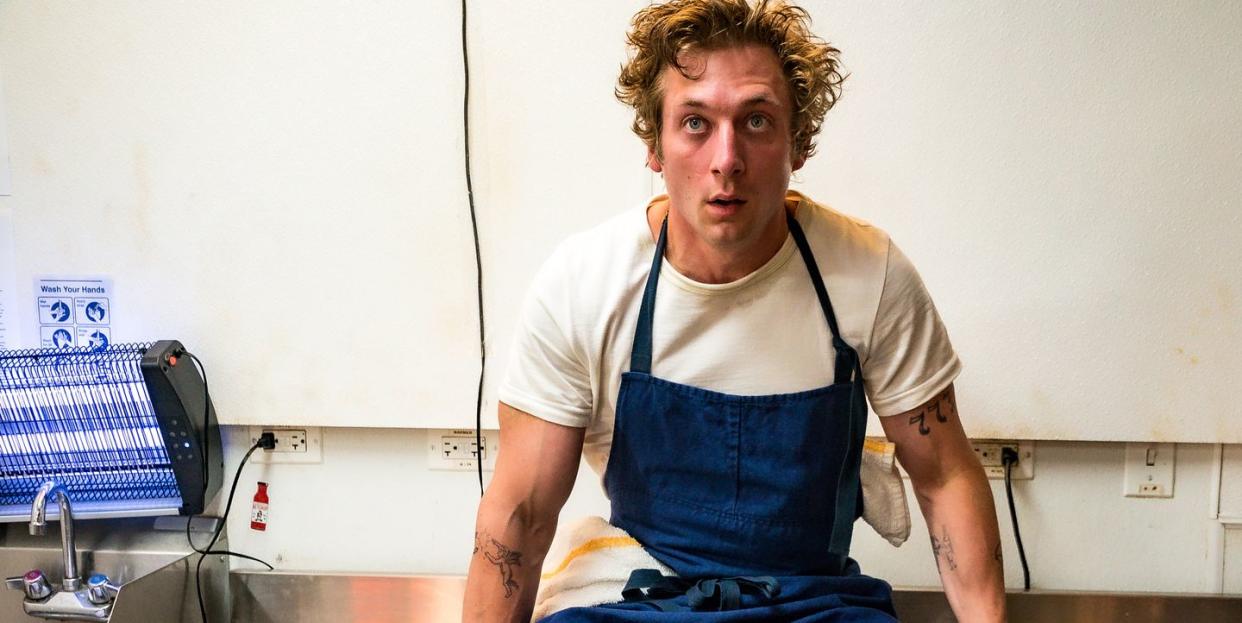
- Oops!Something went wrong.Please try again later.
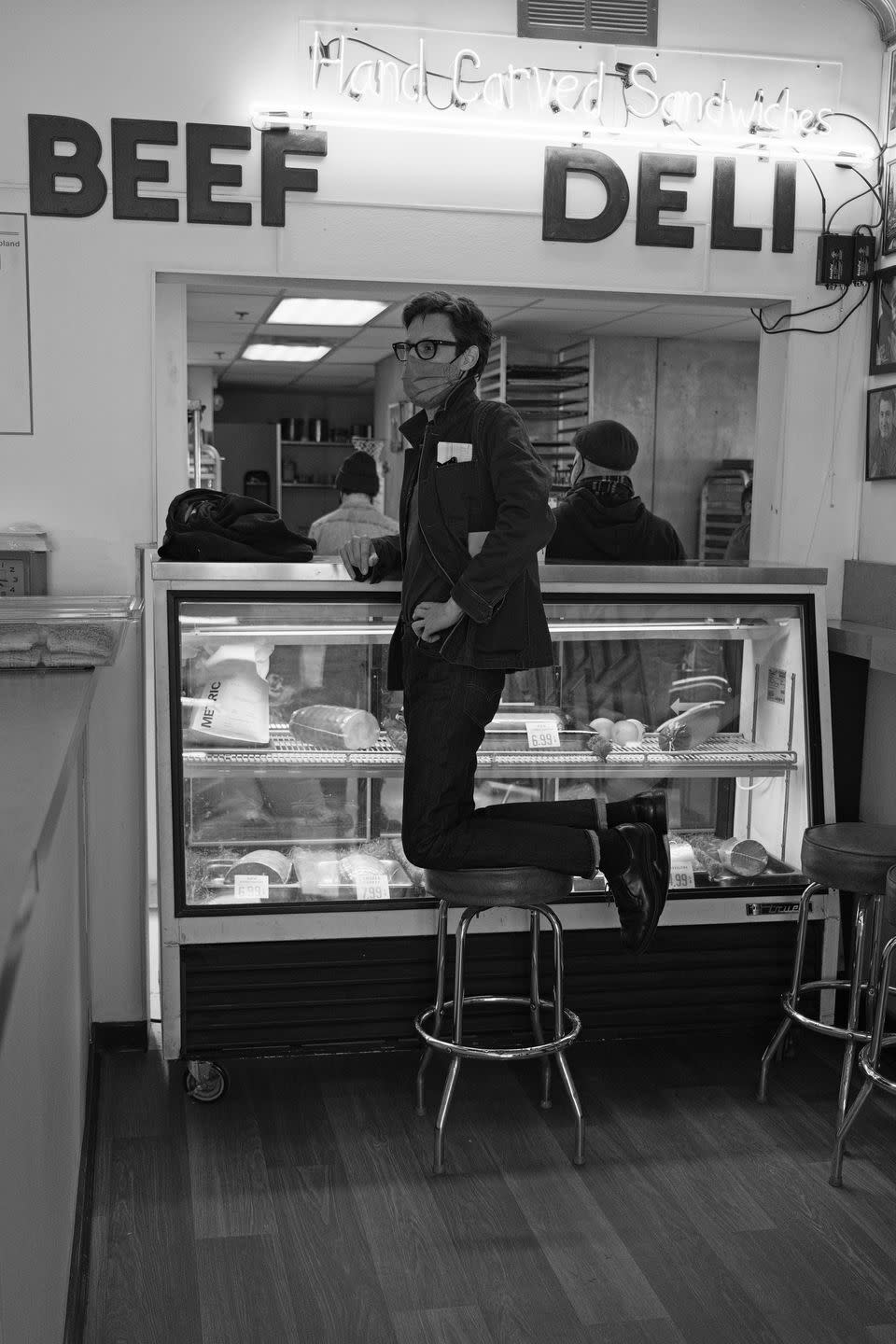
Yes. Your friends are right. If you haven’t done so yet, you need to watch The Bear. That should be perfectly clear by now.
The Bear qualifies as the truest fire-and-blood depiction of restaurant life in the history of television, but it’s more than that, too: The hurtling chaos of Christopher Storer’s Chicago-based FX series feels like a metaphor for the collective stress of being alive in 2022.
Storer, 41, grew up in Park Ridge, a Chicago suburb that borders the northwest side of the city. For the past 20 years he has lived in Los Angeles, where he has worked steadily on movies (he produced 2018’s Eighth Grade), TV series (he has directed episodes of Ramy and Dickinson), and standup specials, including Hasan Minhaj’s Homecoming King, which won a Peabody Award.
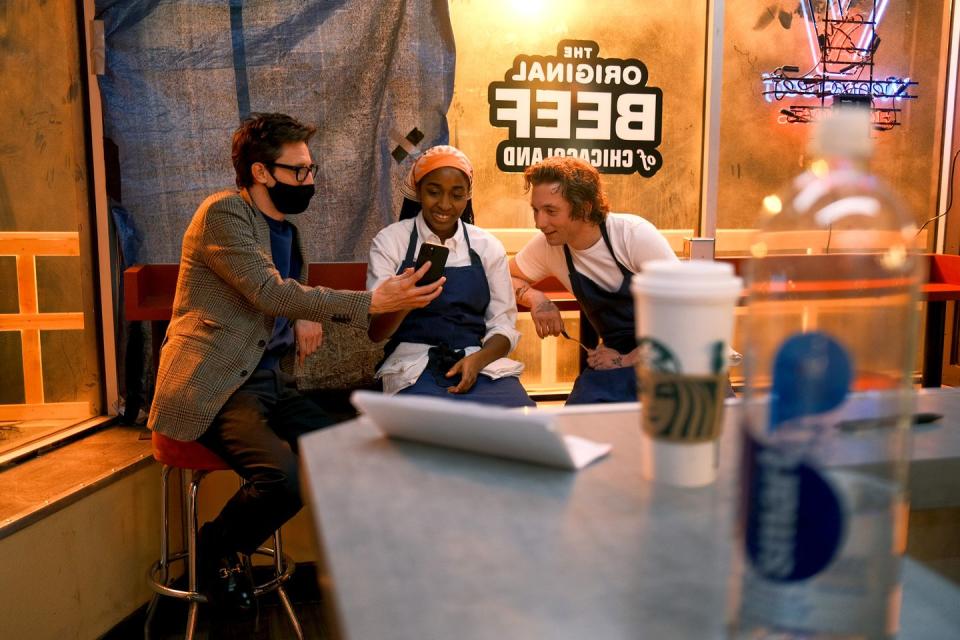
The Bear might represent his high point as a storyteller, at least so far. It is one of those rare works of art that winds up turning into a prism for how we view what’s going on in the world. It’s a melancholy tone poem about gentrification. It’s a scalding depiction of toxic masculinity. It’s a parable of addiction. It’s an indictment of the war-on-humanity that is late-stage capitalism. And thanks to great performances by Jeremy Allen White (as Carmen “Carmy” Berzatto, the fine-dining chef who comes home to Chicago to try to salvage an Italian beef sandwich joint after the suicide of his brother, Michael), Ayo Edebiri (as Sydney, an ambitious and hyper-organized young chef on the rise), Lionel Boyce (as Marcus, the sweetly daydreaming pastry chef), Ebon Moss-Bachrach (as Richie, Michael’s volatile best friend), Liza Colón-Zayas (as Tina, a longtime Michael loyalist who’s wary of change), and co-producer and chef-in-real-life Matty Matheson (as Fak, the wisecracking Mr. Fix It), it’s a master class on the alchemy of ensemble acting.
It’s all that, if you’re looking for that.
But for Storer himself, The Bear clearly embodies something else, too: a method of processing stories of loss, estrangement, trauma, addiction, and food from his own life. Esquire spoke with Storer to get the backstory on the TV show of the summer. The conversation has been condensed and lightly edited for clarity.
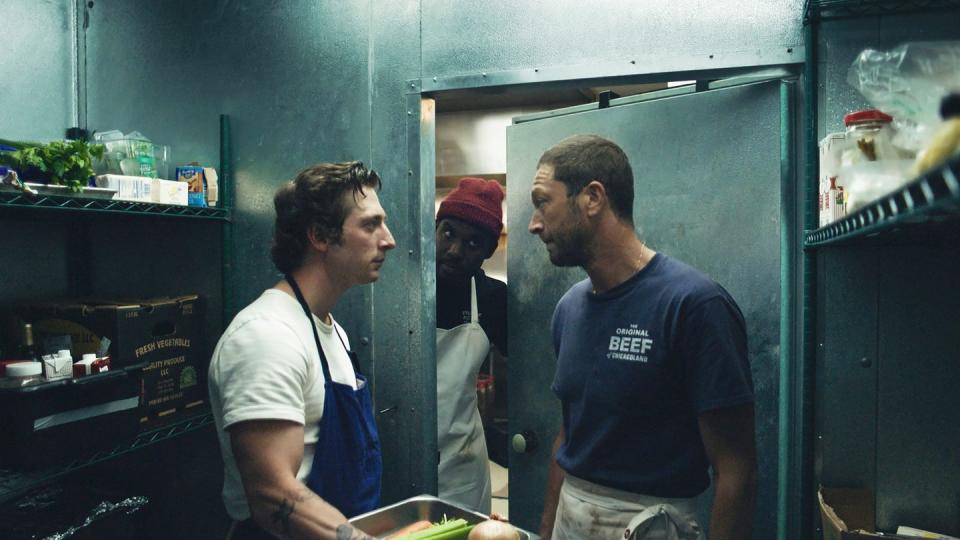
ESQUIRE: I have to be honest: I didn’t initially want to watch The Bear, only because I have endured so many shitty chef movies over the years. Then I started watching it, at my wife’s urging, and I realized immediately that the show got so many things right.
CHRISTOPHER STORER: We thought a lot about that. I’m curious—when you were watching some of the things that didn’t work, were you just like, “This feels like bullshit”? Because I agree that people haven’t been able to get it even close to right. I was writing this thing as a movie at one point, but every time I would take five steps, some chef would be like, “Don’t do it, because it’s gonna fuckin’ suck.”
It’s all about the details.
It has to show how hard it is. Not only from a skill level. But—it’s a hard business, man. There’s something about restaurants that seems untenable from the jump. Even when they’re busy, I can’t help but think, “This seems impossible. This just seems like at any minute this is going to collapse. And you’re a genius, you’re the best at this, and this still seems rickety and crazy.” When you see these restaurants that have been open for twenty years or thirty years, I don’t know how anyone does it.
The Bear is unusual in that it actually deals with payroll, taxes, paperwork, hygiene, plumbing, dishwashing, the grease trap, dirty floors, health inspections. People might normally consider that stuff boring, but it represents reality. Not just in restaurants, but in our day-to-day lives. In The Bear, those nitty-gritty details become the crux of much of the drama.
It’s true. Even when you’re in the development process of any show, for whatever reason I have found that people are really reticent to talk about money. Like, we kept saying that it seems small stakes, but it’s giant stakes, where 100 hours makes a giant difference to a business. I was like, “You can’t make this show without getting into that. You can’t make this show without talking about how the finances ripple through.” But also—I can’t tell you how many chefs told me, “Oh, yeah, on opening night a toilet exploded.” Or the sink didn’t work. Or whatever it was. The cooking? That’s one skill of a hundred that it takes to operate a place.
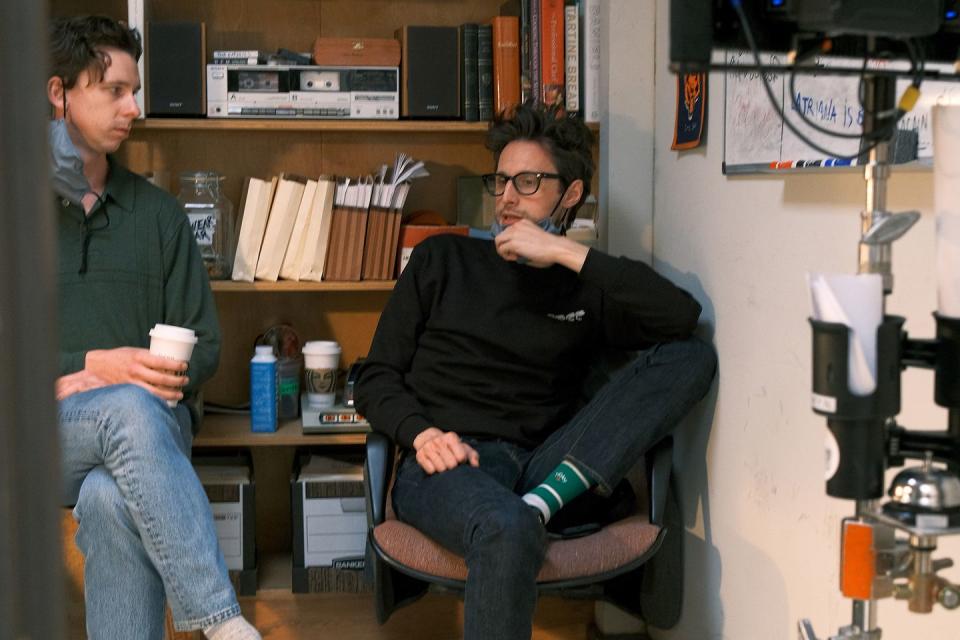
In the show, Chicago itself comes across as its own nation-state, with its own odd customs. I found myself wondering, “Who are these random guys who mill around on the sidewalk outside The Beef all the time?”
I know the owner of Mr. Beef, the restaurant that inspired The Beef. Chris Zucchero. He was my first friend I ever met. Mr. Beef is sort of on the corner—it’s on Orleans, and close to Erie, in River North, which is this beautiful neighborhood in Chicago. And the thing that was so funny to me about Mr. Beef is that it has a giant parking lot. It has, like, space—in the city—which almost seems insane. It has so much room, and there’s something about it that always felt lost in time. I wrote a lot of the show hanging out with Chris in what they call the elegant dining room of Mr. Beef, which is actually just an added-on patio. There was something that felt really lost in time about this specific place. There’s even a sign that says, “Even though it’s 2022 out there, it’s still 1988 in here.” And it was funny because I would see the same group of people kind of hanging out, and they were always really lovely but they were also smoking cigarettes, and Chris would be like, “Guys, I told you you could hang out, but go fuckin’ smoke a cigarette somewhere else because I can smell that shit in here.” There were these very funny details that we sort of found ourselves implementing through the Richie character.
Time, in The Bear, is an ongoing source of anxiety.
Another thing that I found in common with a lot of chefs was how much time a restaurant takes away from them. I can’t tell you how many cooks would tell me, “Dude, I would walk out and have no idea what time it was. I’d have no idea what was happening in the outside world. And my personal life was in shambles. But when I was in the restaurant, I was obsessed with time.” Which became this theme in our show. All the cooks and dishwashers are always under such pressure inside that the minute they step outside, it’s hard to even relate to the life you’re missing.
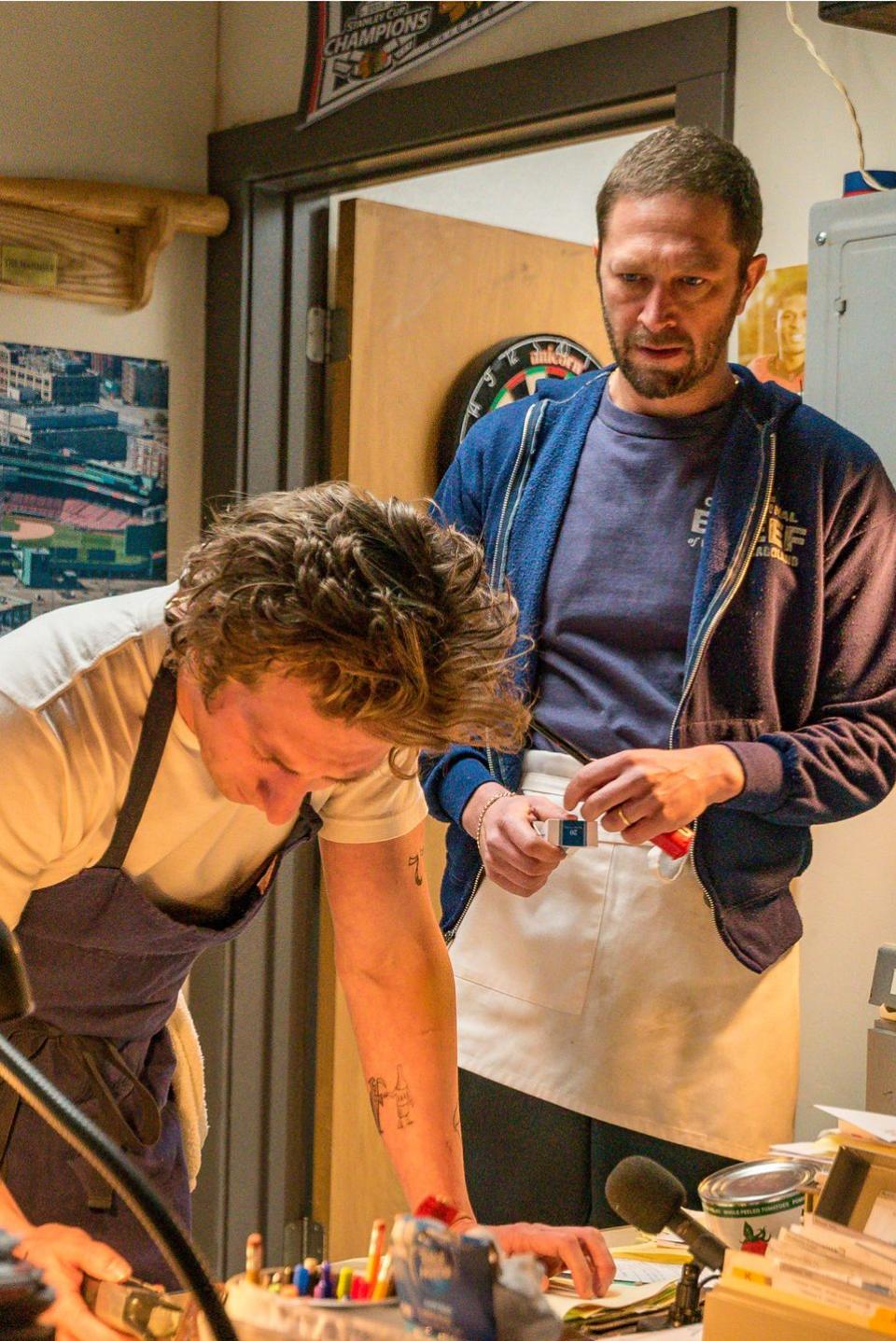
There’s been a lot of reporting in the past few years about toxic work environments in restaurants. It’s reporting that we hope will help change those environments. The Bear suggests that even “good” people—characters like Sydney and Carmy, who come across as thoughtful and well-intentioned—can be driven to the brink of madness, and can blow up, because of the constant pressure.
When I was growing up, my household was kind of gnarly. I had mental illness and addiction in my family. I go to Al-Anon all the time. I’m still dealing with this, as an adult, and finding healthy ways to approach it. Some of the same thoughts that I was feeling about my family I noticed in a lot of toxic work environments. No one sets out, I don’t think, to create a gnarly workplace. Especially in kitchens, you realize that they were probably mistreated by someone, they probably learned this, they probably have something they’re not dealing with. In this particular kitchen, one of the things we really wanted to discuss was that Carmy has seen these kitchens, he has been around some of these toxic workplaces, and he’s like, “I’m gonna not do that.” But he’s also trying to fix this restaurant initially for all of the wrong reasons. Inherently those two ideas are going to be wrestling with each other. And to have Sydney come in—who’s coming in from such a positive place of really wanting to learn something, only to ultimately fall into the dark, chaotic nature of this restaurant—it said something to me about the disease of addiction, and some of the toxins that run through families.
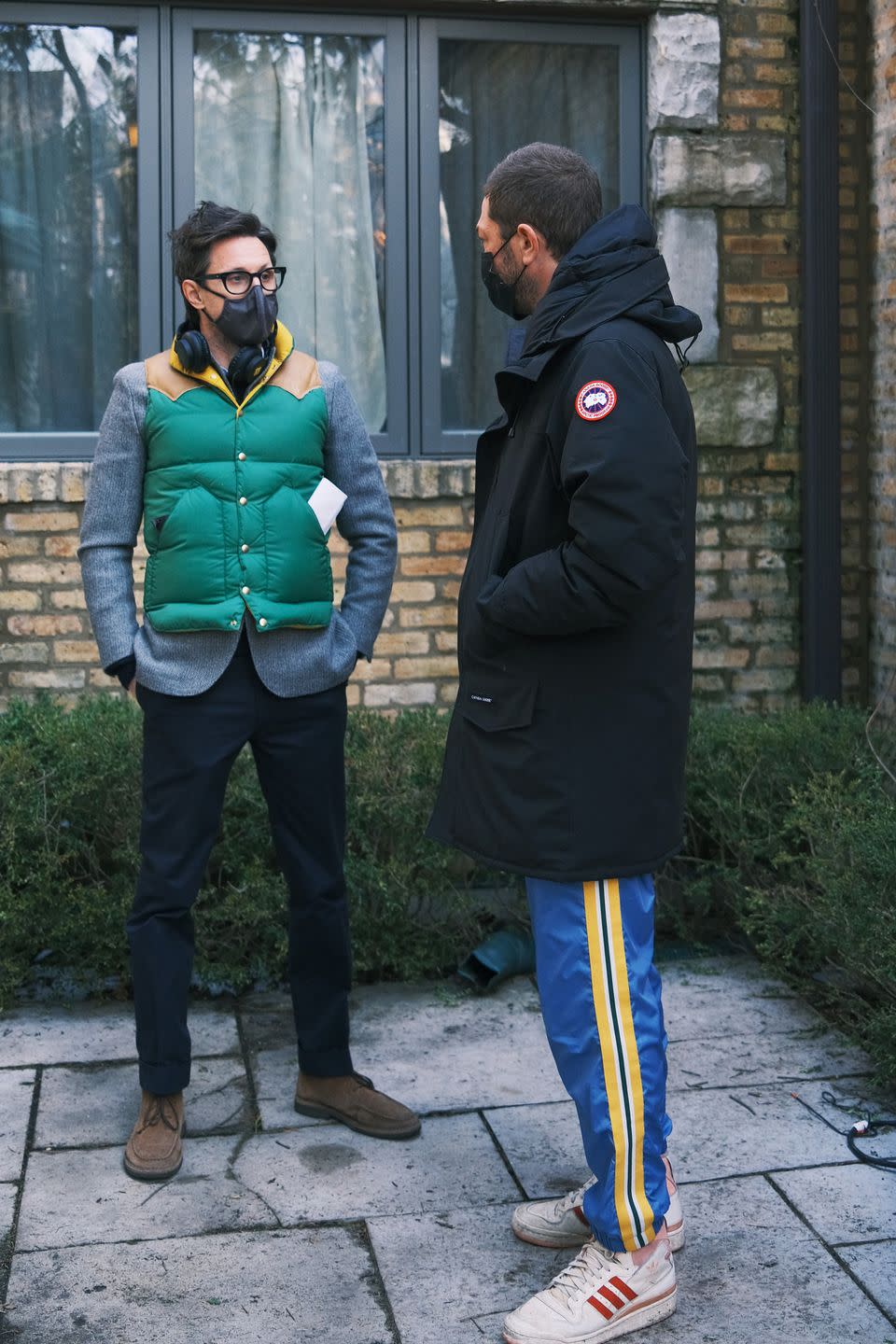
The characters in The Bear are what kept pulling me in, even when they were repelling me. Like Richie, played by Ebon Moss-Bachrach, is so magnetic and yet so unpleasant. He’s mourning the suicide of his close friend, Michael, who was Carmy’s brother, but his process of grief comes across as, well, scary and bearlike.
A friend of mine took his own life not too long before we were developing this thing. It was one of those situations where I thought I was really good friends with him, and then you sort of realize, “Fuck, I didn’t know him that well at all.” You’re on text chains with all your other friends, and everyone’s like, “Fuck, he had all these secrets, and we had no idea.” So I kept thinking for Richie, if Richie had truly lost his best friend, right? He is grieving by screaming at Carmy—he is able to scream at Michael through this kid. And it is unpleasant, and he is saying awful shit. But he is also in real pain. He solves things in childish, immature ways—he thinks he has to have a gun and yell. Ebon did this thing that was really, really amazing, which was just coming out of the gate at 100 miles per hour. I know it’s hard to watch.
That’s true of the whole show. One of the fancy phrases I remember from college is “in medias res,” which is the idea of starting your story suddenly, even confusingly, right in the middle of the action. We learn the most about the characters in The Bear in the last episode of the season, but in the first episode we’re just thrust into the frenzy—almost to an upsetting degree.
It’s 100 percent intentional. It was the only way to explain how a restaurant works. You just have to fuckin’ get thrown into it. I remember very vividly two days when I thought I wanted to be a chef, and being on the line, and thinking, “This is the most insane fucking thing I have ever seen.” Anyone who’s ever worked the line during a brunch service knows that it’s just hell on earth. But it also shows Carmy’s struggle and where his mindset is. When I lost my friend, I just buried my head in work. I’m like, “Well, I’m just not going to think about it. I have plenty of stuff to keep me busy.” I think that’s where he is. Matty Matheson said this thing that was really interesting. Matty was like, “You have to look at this like a submarine. Everyone’s stuck in a submarine together all day, and everyone has their own shit, and people don’t want you touching their stuff.” When you’re spending that much time that close together in a narrow hallway that’s really loud and hot, it’s going to get weird. It’s not okay, but it’s no wonder why these tensions start to get hot really quickly.
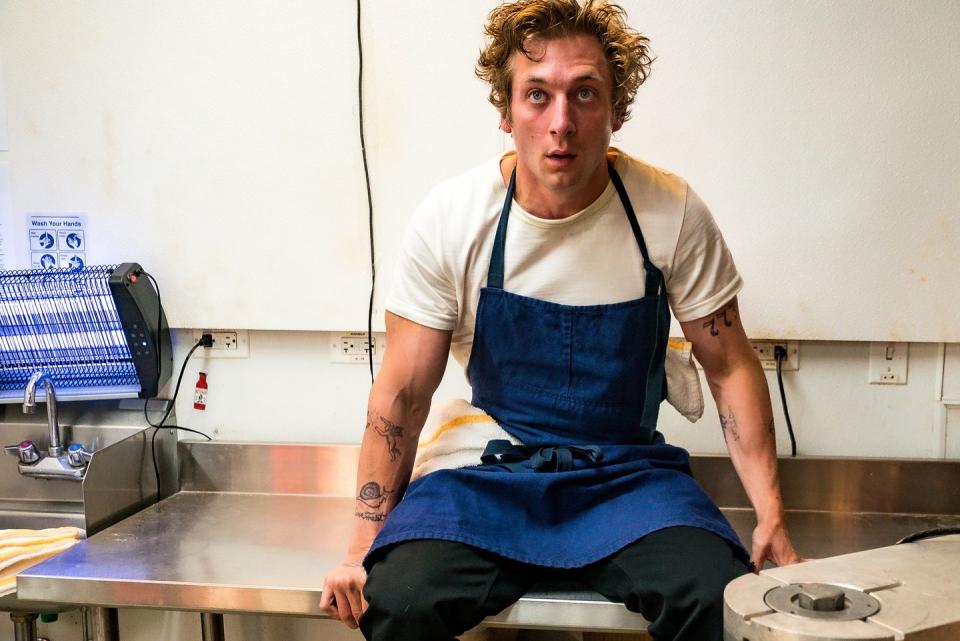
It’s Das Boot.
Dude, we were watching Das Boot and Crimson Tide a lot.
Since we’re on the topic of storytelling, I should say that I dread dream sequences.
I hate them too. I do. I hate them.
But there are some rad dream sequences in The Bear. Especially the one that almost feels like a Nine Inch Nails video with shit scraping through Carmy’s brain. That seemed like a real anxiety dream. So how do you make a decent dream sequence?
First off, I really appreciate that. Look, man, I suffer—I’m getting better about it, but I have terrible anxiety and dread all the time. This is just a normal Tuesday for Carmy. He fell asleep at work, like a lot of cooks do, because he’s unhealthy in his life. And there’s this weird shit he’s thinking about. I don’t know if you get panic attacks, Jeff, but sometimes you get these flashes of what everyone else is doing. You just start thinking about all these things that start building on top of each other. And I have found that sometimes thinking about calmer things helps calm me down. So he’s thinking about these dishes that he had, but at the same time the life that he missed out on by trying to become so good at his job. I think there’s real regret in there, as well.
What’s a meal in your own life that has been especially transformative or nourishing?
It’s in the show—the braciole. My sister and I growing up—our households —we had a bunch of dysfunction, and it was weird. She lived with my mom for a while, and I lived with my dad for a while, and there was a little bit of estrangement even though we loved each other. And food was the thing that brought us back. Braciole was always this Sunday family thing. The best parts of our family being together—there was the Sunday gravy at these things. There was something special and different about it. I think it’s because that’s something that sits there for six hours and you just bullshit around the kitchen.
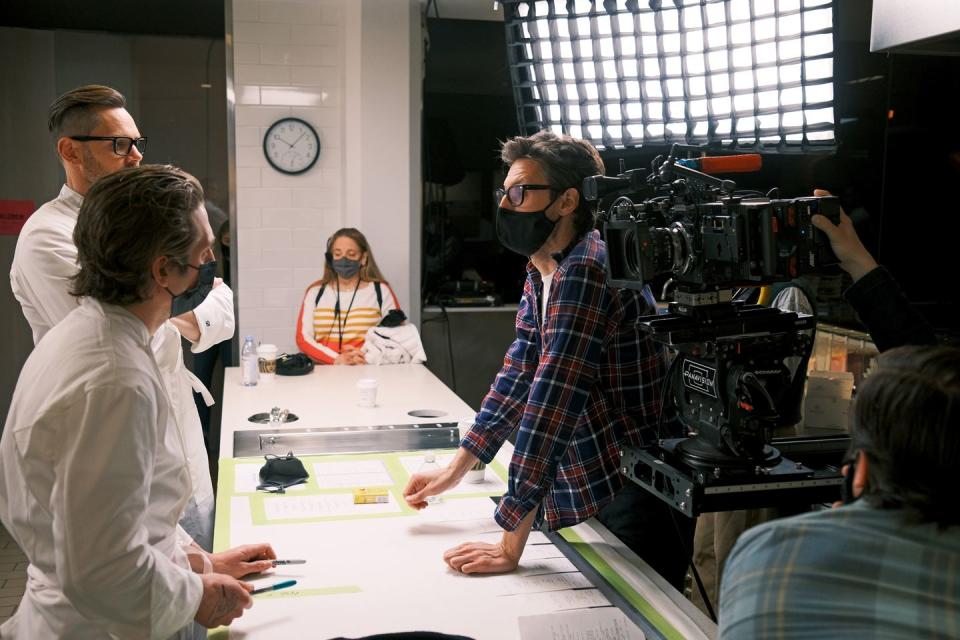
Noma, the famous Copenhagen restaurant, is an invisible character in the show. Why?
There’s an undercurrent in the show that’s about creativity. It’s a big part of the reason why Sydney and Carmy develop this friendship. Carmy is someone who’s terrible at communicating on some things, and Sydney communicates too much, but their middle ground is this creative thing—and between the two of them, Noma would be the North Star. Something like Noma, for these characters, as a young cook starting off, that’s where you’d want to be. Only to learn, “Maybe that’s not what I want to do, or maybe I flamed out too early, or maybe I wasn’t good enough.” It’s where Sydney wants to go.
As does Marcus, the pastry chef, who is played by Lionel Boyce. It’s Marcus whom we see flipping through the Noma fermentation book and taping up a photograph of Copenhagen baker Richard Hart at his station.
Lionel, who’s one of my closest friends, truly wanted to learn more about it. Lionel went to Copenhagen and trained with Richard Hart, and hung out in the bakery, and went to Noma.
Since you’re the creator of the show, I want to say, please protect Marcus! I love this character and I don’t want him to get hurt. He’s dreaming big.
Another thing that I thought was cool, being around these kitchens—there’s always the cook or someone in the background who gets too carried away in their own project, when they shouldn’t. Because everyone’s like, “Why the hell is Marcus working on the doughnut?” I can’t tell you how many times I saw that, during research.
Marcus is in that wonderful space of being creative and taking risks, maybe not unlike Malcolm Livingston, who worked for a time as the pastry chef at Noma.
Malcolm was kind of an inspiration for the character.
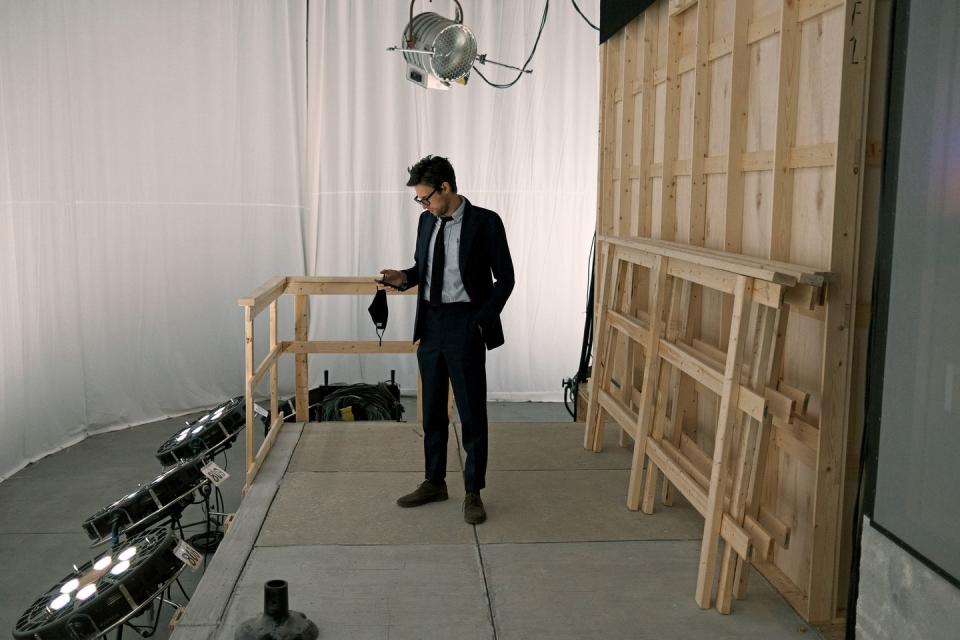
And in the middle of it all is Jeremy Allen White’s instantly iconic portrayal of Carmy, who seems to walk a perpetual tightrope between creation and destruction.
Jeremy does this thing that’s really beautiful in his performance where you’re like, “God, he wants to save this place, but maybe he also wants to wreck it.” I think it’s going back to the addict thing where anytime something good happens, something bad is potentially on the horizon. For Carmy, in episode seven, the tickets are a perfect opportunity to say, “Oh, well, here it is. Now we’re in hell. And now I have to blow this thing up again.”
Episode seven (spoiler alert) is the one in which a food critic’s rave review essentially destroys the restaurant on the same morning that the restaurant starts unwisely taking to-go orders. I know from my own personal experience that such repercussions are real—I recall a mom-and-pop pesto operation in the Hudson Valley, a tiny business that was bombarded by tens of thousands of orders after I wrote about their pesto in The New York Times.
Kind of in the middle of the pandemic, Carbone issued to-go’s for the first time. And I think there was some version of not turning the preorder off, so when they opened it up at 5 o’clock it went berserk. It’s so interesting. Because you think, “Wasn’t that ultimately a good thing?” No, that is gonna sink a place.
Still, at the very end of this first season of The Bear, there’s a grace note of hope, borne aloft by Radiohead’s “Let Down.” Changing the restaurant suddenly feels like a real possibility. A second season of the show has gotten a greenlight, so we’ll eventually find out.
In terms of the restaurant changing, it’s not that they’re going to lose all the charm of the restaurant. We’re going to deal with this in season two. It’s more like: How can we do this and maybe make some money? And maybe make it easier? And maybe—maybe—start from a place that’s not fucked? Instead of beating a dead horse and making this fuckin’ food that no one even wants to make, I see the promise in my sort of found family in the kitchen. Can we use that to build something freshly, now that we’ve all found each other in this stupid-ass system where things make no sense and people are putting veal stock on the top fuckin’ shelf of the walk-in?
Christopher Storer also discusses the music of The Bear in Esquire's September 2022 issue. Subscribe here.
You Might Also Like

